Are you wondering how to hydrate skin from the inside, especially if you’re on a tight budget, and you have dry, red, scaly, or generally irritated skin?
If so, you are in the right place!
As the temperature becomes a little chillier, our skin losses hydration and becomes drier, flakier, and itchier. While using moisturizers, serums, and toners liberally is important for improving skin health, it’s also important to hydrate and moisturize your skin from the inside.
The nutrients your skin needs to heal and restore itself function at the cellular level to keep the skin supple and smooth.
In this article, we’ll discuss skin dehydration, including its causes and natural ways to hydrate your skin from the inside out to restore its glorious beauty. If you care about your skin, then it’s important to understand the basics of how to keep your skin hydrated and glowing.
You should first recognize the distinction between dry skin and dehydrated skin. As we go down the road, we’ll also discuss that.
Keep reading to find out more!
Learn More!
Skin Dehydration and Causes
Dehydrated skin is often used interchangeably, but they are two different skin conditions. This has caused a lot of confusion in the industry. One major sign of dehydration across the body is dry skin. A person will get dehydrated if they lose more water than their intake.
Dehydrated skin is a condition brought on by a lack of fluids. Your skin loses water due to environmental variables like the climate, a poor diet, and lifestyle decisions like smoking or drinking.
The skin’s barrier is compromised by this dehydration, making it unable to defend itself against microorganisms and other outside irritants. Another factor contributing to this imbalance is utilizing skincare products with harsh or inappropriate ingredients.
Your skin might be dehydrated if you’ve noticed that it’s more sensitive or irritated than usual. Dehydration can occur on skin of any type, not only dry skin, during specific seasons or situations.
Other Causes Of Skin Dehydration
Dehydration can occur for a variety of reasons, including:
-
Very high temperatures
The natural protective layer of your skin can be harmed by extremely hot or cold conditions, such as when you have a fever or sunburn. Even if it could be challenging to avoid them, do your best to minimize your exposure.
-
Excessive exfoliation
The natural moisture barrier of your skin might be harmed by excessive exfoliation. If you exfoliate your skin with harsh, abrasive products, the damage could be greater.
-
Harsh cleansers
Skincare products with toxic, caustic components might affect your skin’s ability to retain moisture.
-
The air conditioners
Your skin’s health may suffer as a result of air conditioners’ reduced humidity. The skin becomes dry as a result of the moisture barrier being damaged by low humidity.
“To retain skin fragility, alkaline substances like soaps and acids with a higher pH should be avoided”,
according to Dr. Harish Koutam, the Chief Dermatologist at SkinKraft.
Difference Between Dry Skin And Dehydrated Skin
Dehydrated skin is not the same as dry skin?
Although the signs of dry skin and dehydrated skin are similar, they are two separate skin issues. Dehydration can affect even people with oily skin. Lesser oil-producing cells on both the body and the face are usually the cause of dry skin.
Loss of resilience is a sign of dry skin rather, not always cracked or flaky skin. The symptoms include:
- The absence of sebum
- Scratchy & flaky
- Inflammation and bruising
- Skin with scales
- Skin is dry throughout the year
While dehydration is a transient condition. Symptoms include:
- Lack of water
- A lackluster or uneven complexion
- Tight, scratchy, and delicate
- A lack of comfort and shine
- A rise in the visibility of wrinkles and fine lines
- Sunken eyes or darker circles
We can give you all the skincare advice in the world, but one of the greatest things you must do to maintain a happy, healthy complexion is to stay hydrated. Properly hydrated skin will continue to be soft, smooth, and less sensitive to external irritants and pathogens.
Advantages Of Skin Hydration
Having well-hydrated skin has several advantages, ranging from improved beauty to better general health.
-
Improved skin elasticity
“Elasticity” refers to the skin’s capacity to stretch and return to its original form. Dehydrated skin loses its suppleness, which can make it appear sagging, wrinkled, or leathery.
-
Reduced wrinkles appearance
Improved hydration aids in filling out dehydrated and depressed skin cells to smooth out wrinkles and fine lines. Increased moisture can quickly provide this effect, and appropriate skin care can keep it going over time.
-
Balanced production of oil
Your body may need to increase oil production from your sebaceous glands when your skin is dry, which increases your risk of developing acne and clogged pores. Hydration aids in preventing this signaling to reduce excessive oil production.
-
Improved defenses
It was already mentioned, but it bears repeating: moisturized skin is better able to fight off dangerous microorganisms and germs.
How? It’s easy.
Lipid cracks = dry skin.
Flexible defense barrier = hydrated skin.
-
Detoxification
Dull skin can occur when toxins are not properly removed. Not only can hydrated cells make your skin seem nicer, but they also remove toxins from your body more effectively.
How To Hydrate Skin from The Inside Out and on A Budget
From the inside
As I already mentioned, several (OTC) over-the-counter skincare products can give your face the desired shine, but the effect is just fleeting. The best technique to become and stay glowy is internal hydration.
Below are the best tips on how to hydrate your skin from the inside and keep it Glowy ever after.
-
Start by drinking plenty of water
Besides water, what to drink to hydrate skin is often misunderstood by many people. Since water makes up roughly 60% of your body, it is crucial to many bodily processes, including delivering nutrients to cells and flushing out impurities.
To avoid parched skin, it additionally keeps the skin cells moisturized. Include fruits and vegetables high in water content in your diet, including watermelon, cantaloupe, musk melon, spinach (also vitamin A), lettuce, and celery, in addition to the 6 to 8 glasses of water per day that are advised.
For healthy skin, a nutritious diet is essential. We advise that you include Omega-3 fatty acids and antioxidants in your diet. With the help of omega-3s, you may say goodbye to acne, protect your skin from UV damage, and enhance the barrier function of your skin. Foods including fatty fish, nuts, as well as plant-based oils are sources of omega-3s.
Antioxidants can also keep your skin moisturized by improving its ability to hold onto moisture. We advise consuming antioxidants like sunflower seeds, avocados, walnuts, and dark chocolate, which are high in vitamin E.
Yes, if you needed a reason to indulge in more chocolate, we advise choosing a dark chocolate that contains at least 70% cocoa.
-
Keep away from dehydrating food or beverages
Let’s talk about some things you need to eliminate from your diet once you know which ones you should be putting in. Drinks and foods heavy in sodium and sugar can cause severe dehydration. Too much alcohol, caffeine, processed food, etc. can make you break out, irritate your skin, and make you seem dull (or dehydrated).
We advise cutting these out of your diet entirely if you’re attempting to treat dehydrated skin. We advise consuming in moderation if you want to prevent dehydration. If you do give in, drink lots of water for both your body and skin at the same time.
-
Eat healthy fats
Healthy fats are the fundamental building blocks of skin cells. They are important for the efficient operation of our skin as an organ and for it to serve as an effective barrier against the outside environment. Olive oil, nuts, seeds, and fatty fish such as salmon and mackerel are good sources of omega-3 fatty acids, although might be difficult to get in stores.
- Eat foods high in collagen
Your skin may become dry and dehydrated if you don’t consume enough fats or proteins.
“You need to eat foods that moisturize from the inside out to provide sufficient hydration to the skin. And collagen is essential for skin hydration”,
according to Dr. Shivdasani.
Doctors prefer drinking bone broth, because it’s naturally rich in collagen, protein, and healthy fats, even though the verdict is yet out on supplements. He claims that it is the greatest lubricating moisturizer available. Garlic, citrus fruits, and eggs all help the body produce more collagen.
-
Include more omega-3-rich items in your diet
Salmon and other fatty fish include omega-3 fatty acids, which will aid in improving the moisture of your skin. It also aids in controlling your skin’s oil production.
“Those who don’t eat more fish, like to take supplements of fish oil, but you can’t take too much because it might be hazardous. The day you consume fish, skip your supplement”,
Dr. Shivdasani advises!
Another alternative is flaxseeds. Omega-3s are an essential component of the lipid content of your skin and aid in improving its barrier function, which, when it’s in good working order, functions as a seal to keep irritants out and moisture in.
-
Eat meals high in vitamin A
Skin elasticity can be preserved by eating foods high in vitamin A, such as carrots and sweet potatoes.
“Because they contain Vitamin C, they fight free radicals and stimulate the growth of fibroblasts, cells in charge of creating the tissue that makes skin healthy and firm”
According to Dr. Aggarwal.
-
Get quality sleep
A good night’s sleep can benefit your skin as well as your mind and body!
Your skin spends the majority of its time repairing and refilling its moisture barrier when you sleep, thus the more sleep you receive, the more you give your skin the time to do so. We advise making an effort to get at least 8 hours of night sleep to support moisturized, healthy skin.
If you have trouble sleeping at night, follow the tips below!
- Cut back on your screen time. Consider substituting a book for one of your evening TV shows, an hour or so before bed.
- Engage in everyday exercise. Positive effects on sleep are produced by physical activity.
- Spend 10 to 15 minutes before bedtime doing some breathing exercises or meditation.
- Maintain a regular bedtime regimen. It could be difficult to obtain a decent night’s sleep if you go to bed at various times every night.
Your skin will get the glow it requires if you stay hydrated. This is due to the moisture that the skin’s top layer needs to remove toxins and transport nutrients to the skin’s cells.
Additionally, well-hydrated skin is less vulnerable to the irritants and pathogens that can penetrate the lipid barrier of dehydrated skin. Because of this, it’s crucial to take care of your skin. Make sure you keep it hydrated and utilize safe products.
You May Also Love These!
From the outside
-
Avoid hot baths and showers
Although it may appear on the surface that hot baths and showers would help soothe dry skin, the contrary is true.
“Hot baths and showers cause water to move out of the skin and dissipate into the shower, which dehydrates the skin. The ideal showers are quick ones that are lukewarm so that the water stays inside the skin.”
It is important for consumers to look for chemicals in body cleansers that can draw water in and enhance the effects of hydration to really hold in that water content. Hyaluronic acid is an excellent component that accomplishes this result.
Recommended Product:
Olay Cleaning & Nourishing Body Wash
-
Limit the use of soap
Many soaps include harsh chemicals that can dry up the skin and remove its natural oils. Avoid soaps that have alcohol, deodorants, or perfume in them. Cleansers without soap are far more gentle on our skin than soap.
-
Add honey to your routine
Using honey on your skin is one of the best ways on how to hydrate skin fast, though hydration remains the best and long-lasting approach. Honey has antimicrobial qualities in addition to cleansing and rehydrating the skin. Applying a honey face mask to dry, uneven skin can make it less noticeable and make it glow. After 30 minutes, cleanse the face with lukewarm water after letting raw honey lie on it. It is gentle enough to use on the face and can be applied to dry regions on the knees and elbows.
-
Take an oatmeal bath
A soak with oats is excellent for hydrating the skin. The antioxidant and anti-inflammatory qualities of colloidal oatmeal. Oatmeal can soothe annoying itching in addition to aiding in skin smoothing. Afterward, moisturize to seal in the results.
-
Purchase a humidifier
According to Dr. King, using a humidifier in the bedroom or any other location you pass a lot of time in will enhance the air’s humidity and prevent your skin from losing as much moisture as possible. This is particularly important in the winter when the atmosphere in our houses tends to become quite dry from putting the heat on high.
-
Avoid using harsh cleaners
Sharp washing solutions deplete the skin’s natural oils and moisturizing ingredients, causing the skin to become microcracked or sliced. This may cause the skin to become dry, cracked, irritated, and even develop eczema. Dr. Green advises choosing gentle cleansers rather than those that contain chemical exfoliants like alpha hydroxy, glycolic, or salicylic acid.
Recommended Product:
La Roche-Posay Toleriane Hydrating Gentle Cleanser
-
Do not over-cleanse
You frequently strip your skin of both its natural microbiota and moisturizing barrier agents when you over-cleanse it (i.e., wash your face more than the advised once every morning and before bed). Dr. Green advises using a little moisturizer after cleansing your face if you have to wash it more than twice per day (for example, if you’re a sucker for vigorous exercise). This will replenish any moisture that was lost.
-
After cleansing, keep your skin moisturized
After cleansing, pat your skin gently dry rather than allowing it to air dry fully. This will allow you to apply moisturizer while your skin continues to be somewhat damp.
“This makes it more likely that the moisturizer you use will draw that water in and allow your skin to “drink” it”
According to Dr. Green!
-
Look for skincare products with moisturizing and hydrating ingredients:
Humectants, emollients, and other occlusives are the three categories of moisturizing chemicals that you should include in your skincare regimen.
Humectants: (Includes – Hyaluronic acid and Glycerin). These are ingredients that bind water to the skin’s outer layer and must be used in conjunction with other ingredients to maintain the water content they offer.
Emollients: The function of the skin barrier is aided by (squalane, ceramides, and fatty acids), which improves the texture and look of the skin as a whole.
Occlusives: (Includes – petrolatum, beeswax, and mineral oil). These are waxes and oils that physically prevent transepidermal water loss (the process by which water evaporates from the skin) by forming an inert layer on the skin.
-
Wear sunscreen constantly
The skin barrier can be damaged by radicals resulting from UV radiation, which can result in dry, irritated skin.
“UV rays degrade the matrix of cells (the fibers in your skin) over time, which makes it harder for your skin to retain moisture”
According to Dr. King!
And according to Dr. Green,
broad-spectrum sunscreen not only acts as your biggest defense against the sun but also helps to seal in moisture by forming a physical barrier. Look for chemicals like titanium dioxide and zinc oxide, which create a physical barrier on top of the skin, when purchasing sunscreen and beauty products with SPF.
-
Use a thicker moisturizer in your night routine
It’s advised that night moisturizer should be heavier or thicker, in addition to being applied immediately after cleansing with a hydrating moisturizer. Doing so will protect the skin”s barrier and keep moisture in so that it won’t evaporate while you’re sleeping. Look for a moisturizer that is emollient and has compounds like petrolatum, ceramides, and squalene.
Depending on the nature of your skin, choose a moisturizer. Moisturizers with a cream basis are effective for dry skin. A mild lotion-based moisturizer will keep your skin from feeling greasy if you have oily skin. Choose a moisturizer with barrier repair since it will penetrate your skin’s deeper layers and repair your skin from the inside, keeping it from drying out.
Recommended Product:
CeraVe Moisturizing Cream
-
Exfoliate once per week
You may ensure that the moisturizers you are using will absorb better by exfoliating dead skin cells once or twice a week.
“Mechanical exfoliation can frequently damage the skin barrier and lead to greater dryness and irritation. Exfoliate using a humectant ingredient, such as glycolic or lactic acid, that minimizes the loss of moisture.”
According to Dr. Hartman!
Recommended Product:
The Ordinary Lactic Acid 10% + Hyaluronic Acid
-
Use a moisturizing sheet mask
According to Dr. Hartman, using a hydrating sheet mask in your skincare routine regularly (preferably once per week) is an easy approach to boosting water content in a concentrated fashion. Look for sheet masks with components like hyaluronic acid, aloe, oat extract, and green tea, including vitamins A, E, and C for a double-whammy of moisturizing and soothing qualities.
Recommended Product:
Dr. Jart Dermask Water Jet Vital Hydra Solution Sheet Mask
-
Incorporate a heated water spray into your routine
Take into account incorporating a heated water spray into your toolkit to restore your skin’s balance. According to Melanie Palm, M.D., a board-certified dermatologist in San Diego, they feature mineral-heavy levels that have been demonstrated to moisturize, lessen redness and irritation to our skin, and help promote a healthy skin microbiome.
Recommended Product:
Avène Thermal Spring Water
-
Update your makeup routine
Your regular makeup routine might include important components that can aid in rehydrating the skin. According to Dr. Green, if you have parched skin, you should go toward cosmetics with moisture-sucking components like hyaluronic acid, glycerin, and squalane.
Dr. Green also suggests looking for makeup and skincare products with sunscreen integrated into them for further protection from UV radiation.
Recommended Product:
IT Cosmetics Your Skin But Better CC+ Cream SPF 50
-
Treat yourself to face masks and sheets
Face masks contain lots of moisturizing components. Your skin will stay hydrated and plump if you include a face mask that is hydrating in your regular skincare routine. Additionally, it can lessen the visibility of small wrinkles and dark circles.
Check These Out!
Best Tips for Dealing with Oily Skin
Why Skin Health Requires Proper Hydration
Numerous factors might contribute to dehydrated skin, but they all have the same effect: your skin isn’t at its healthiest. (This is unfortunate because your skin performs several crucial tasks.)
Three layers make up the skin:
- The epidermis
- The dermis beneath the epidermis, and
- The subcutaneous tissue
Your epidermis does a pretty decent job of maintaining the moisture content of your skin, thanks to a skin barrier consisting of ceramides, fatty acids, and cholesterol. However, if this skin barrier is harmed or undermined, it will no longer be able to hold moisture effectively, which will cause skin problems.
Dermatologist Janet Prystowsky from New York City says “See your skin as a cement sidewalk. It resembles your pavement having large fissures going up and down it when your barrier is compromised. These breaks in our skin expose the delicate layers of our skin to dry air, which dehydrates them.
Even while there are countless topical remedies and personal care items designed to cure dry skin problems, the key to soothing irritated skin is not a moisturizing cream—it’s first hydrating from the inside out. This is because inwardly hydrated skin is better able to care for itself by more effectively removing toxins and delivering nutrients to its skin”s cells.
What Situations Call For A Dermatologist Visit?
In most cases, dehydrated skin is not a serious skin problem. Serums, creams, and lotions that are hydrating can help you get better-looking skin. But if you try to stay hydrated and your skin’s overall health doesn’t improve, or if you have any of these signs, see a dermatologist:
- Flakes of white
- Red spots
- Inflamed and itchy skin
- Inflammation
- If dry patches on your body or face keep appearing,
Verdict
Hydrating your skin from the inside out is essential for keeping it healthy, youthful, and free of wrinkles. It is unarguable that the concept of how to hydrate skin overnight begins with sufficient water intake.
But in addition to drinking enough water, follow a proper skincare routine, eat foods high in water, and adopt a healthy lifestyle to enjoy hydrated and healthy skin all through the year.
FAQs
How can I improve my dry skin internally?
The best way to hydrate skin internally is by consuming sufficient water from various sources. From drinking to eating foods that are rich in water.
What is the fastest way to hydrate your skin?
Besides eating and drinking water, you should also use a humidifier in your house, bedroom, or office (where you spend more time). Also, avoid hot baths, use skincare products with skin-hydrating ingredients, (details above), and avoid spending more time under the sun.
What is the best natural way to hydrate skin?
The best natural ways to hydrate your skin involve anything without using chemicals or cosmetics. That is eating and drinking water, avoiding sun exposure, getting a good night’s sleep, and adopting a healthy lifestyle.
Related Articles:
Best Makeup Tips for Oily Skin



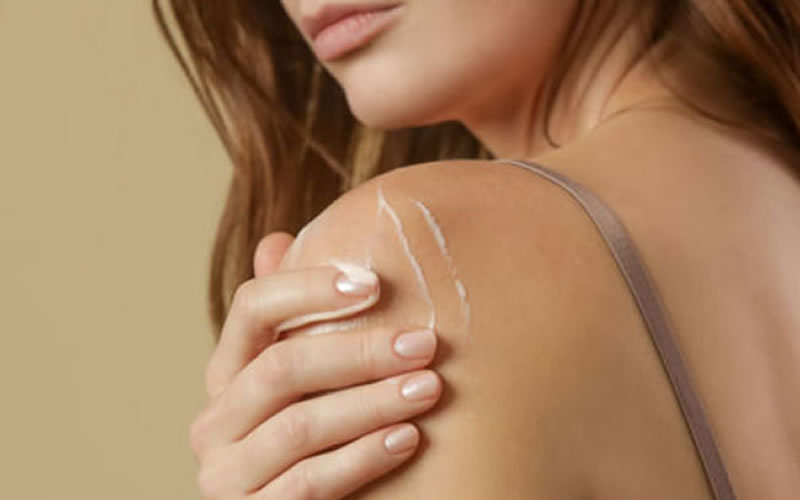

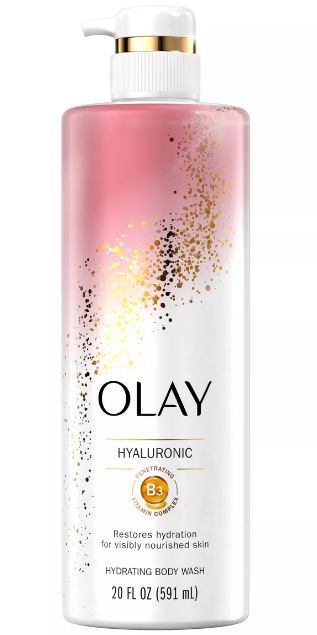
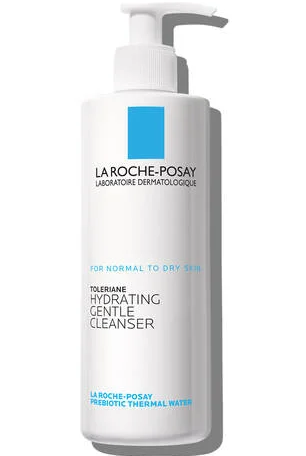
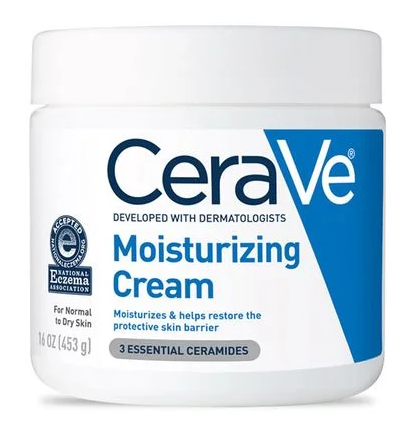
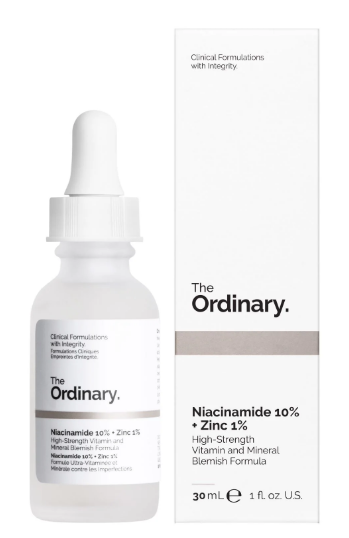
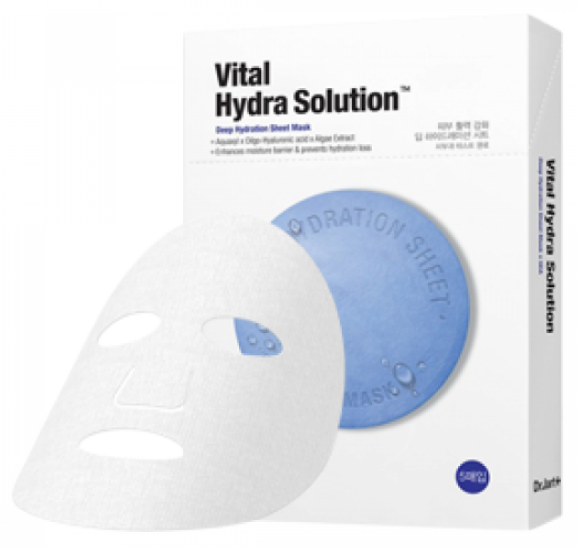
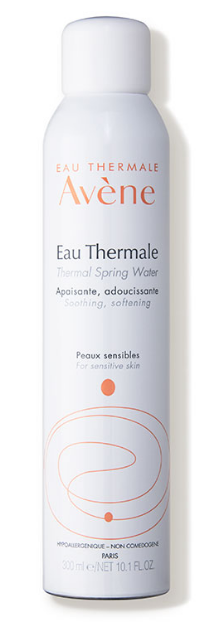

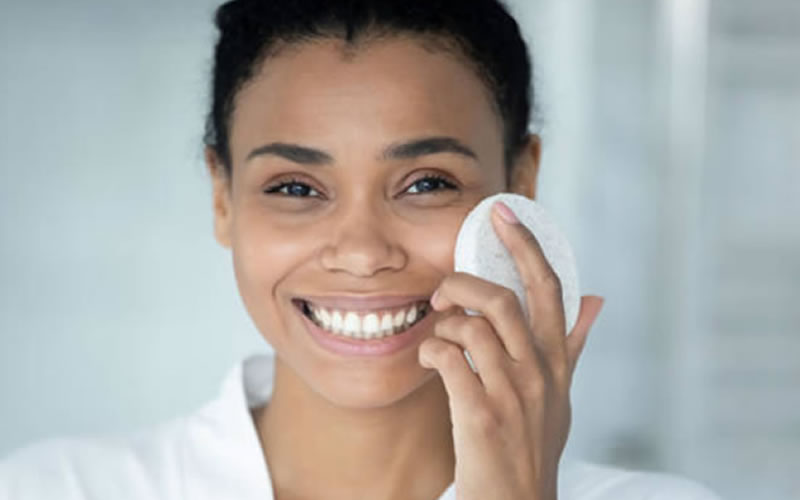

Your approach to writing content for articles is quite remarkable. What a fantastic piece! I will make it a point to check it out at a later time. I have bookmarked it. In this day and age, I find that reading really intriguing articles or reviews on the internet teaches me something new and challenging.
Thanks very much for your contribution. Educating our visitors is our #1 priority at Beauty & Fitness!
Hello my loved one I want to say that this post is amazing great written and include almost all significant infos I would like to look extra posts like this
Hi i think that i saw you visited my web site thus i came to Return the favore I am attempting to find things to improve my web siteI suppose its ok to use some of your ideas
Hi there.
Thank you for reaching out.
Ots OK for me.
No problem
Thanks for sharing. I read many of your blog posts, cool, your blog is very good.
Thank you for your support! I’m delighted to hear you enjoy the blog. Stay tuned for more content!
I have been surfing online more than 3 hours today yet I never found any interesting article like yours It is pretty worth enough for me In my opinion if all web owners and bloggers made good content as you did the web will be much more useful than ever before
Thank you for your thoughtful comment! I’m so glad you found the article interesting and valuable. It’s feedback like yours that motivates me to keep creating quality content. I hope you’ll visit again soon!
Its like you read my mind You appear to know a lot about this like you wrote the book in it or something I think that you could do with some pics to drive the message home a little bit but instead of that this is fantastic blog An excellent read I will certainly be back
Thank you so much for your kind words! I’m thrilled to hear you enjoyed the blog. I’ll definitely consider adding some visuals to enhance the content. Your feedback is greatly appreciated, and I look forward to having you back soon!